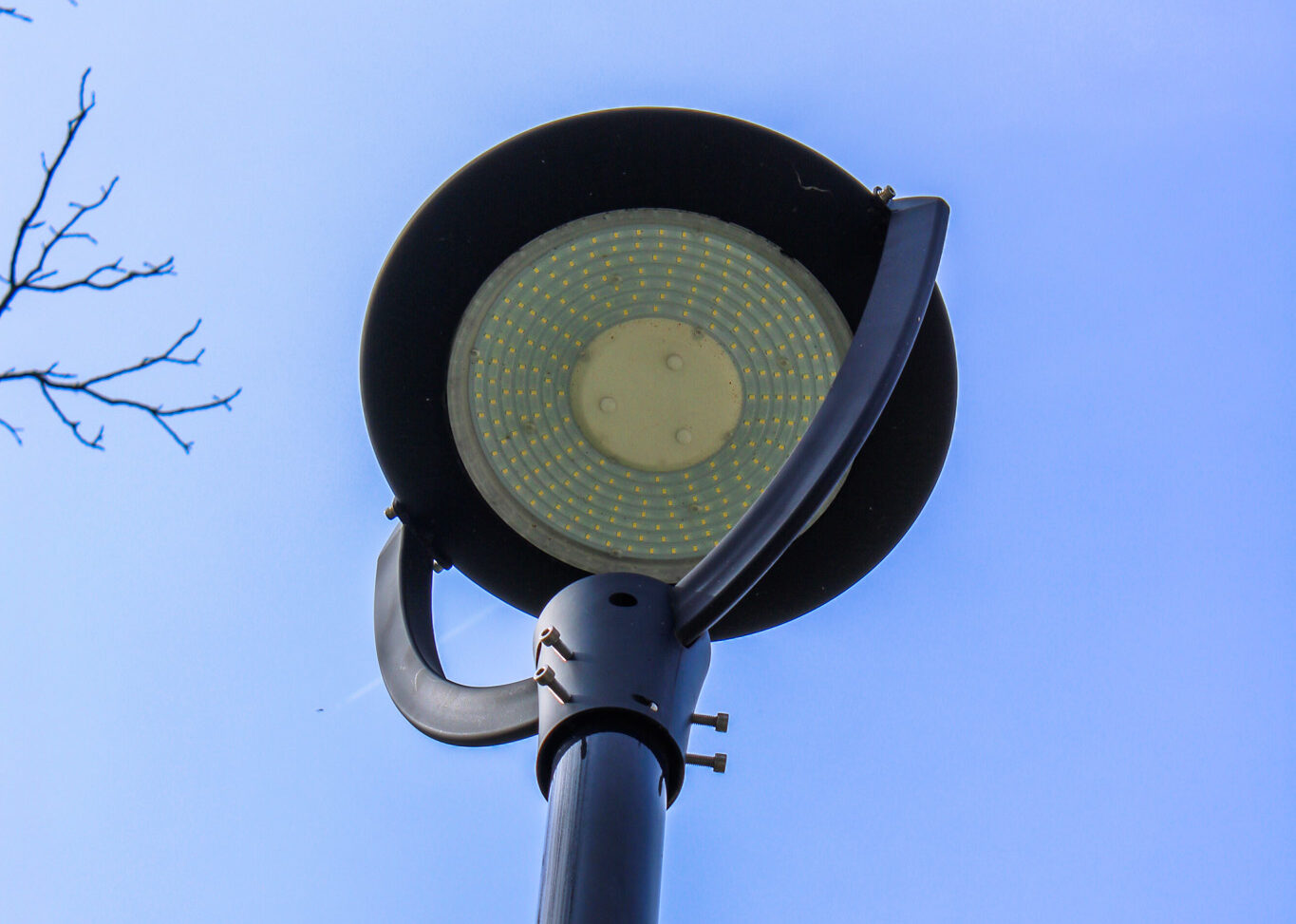The less “green” parts of campus are due for an update, from the poles that literally light students’ way at night to the most hidden away boiler rooms on campus.
For all the students currently at Goshen College, the light pole replacement project has been an ongoing effort since before they arrived on campus. When it first started out, the poles were only getting switched out if they needed to be replaced due to damage or other issues, but now the whole host of new light poles are getting an expedited arrival time on campus.Brian Mast, director of facilities, said that they hope to have the new more efficient and environmentally friendly lights completely replacing the old globes within the next three to four years. Mast said, “Those globes were really inefficient because the light went 360 degrees around the globe, and these are focused just down, and so the light pollution is cut significantly.” To get a sense for the new lighting, one needn’t look further than the new Westlawn renovation, as that building was the first to be surrounded by the new fixtures.
However, poles lining the sidewalks aren’t the only lighting renovation to be coming soon for GC. Mast said that new overhead lights have already been installed in the Recreation-Fitness Center parking lot, as sort of a test drive for the new systems. The motion detecters in them will allow for less light to be wasted. “And so [the new lights are] both an energy saving piece, but also a security thing — like if nefarious activity is gonna happen in a parking lot, all of a sudden the lights come on, you’re like, whoa, something’s going on here,” Mast said.
Also coming up on the campus greenifying calendar is following through on a college wide energy audit that was done by an outside company and revealed several places to be prioritized. The facilities team is asking questions such as, “How would we implement more solar? How would we implement geothermal?”
This includes making small but conscious efforts to improve energy efficiency, like making more sustainable choices when doing maintenance, or cleaning the solar panels so that their energy output is higher. Mast is also contemplating how to make environmental efforts more visible on campus: “We want people to come on this campus and see, like, whoa, yeah, there is a commitment to sustainability here.”
Beyond just the administration’s goals, students are also stepping up to take on big projects for increased environmental consciousness on campus. Jerrell Ross Richer, professor of economics, is teaching the class Environmental Economics, in which one of the main projects is taking on a specific facet of campus life that could be made more sustainable.
Some past projects from this class have included working with economic impacts of the native prairie restorations, and mitigating the environmental impacts of the international travel that is necessary for a semester’s Study-Service Term abroad. This work, known now as Carbon Onsetting In Global Education, includes financial off-setting of items like carbon emissions from flights and an environmentally conscious project as part of the curriculum while studying abroad.
For the current semester, more than 15 projects are underway, including efforts to increase the availability of e-bikes for students who don’t have cars and need to travel off campus for class, auditing the energy usage of refrigerators on campus and encouraging student groups to adopt a garden on campus to increase the plant diversity and create incentives for greater student engagement in GC’s green spaces.
Virginia Jimenez, a senior sociology major, is one of the group members in the adopt-a-garden project. She said that one emphasis of the class is “finding a good balance between environmental projects and not making them so economically draining.” The hope of this work is that eventually “we could also implement fruits and vegetables, which could also give back to the campus … even allowing those organic resources to be used in the dining hall or the Leaf Raker,” Jimenez said.
When considering the potential viability of all of these projects, Ross Richer said, “Sometimes they are just planting seeds which may someday bear fruit, either here at Goshen College or in other organizational contexts.” He continued: “My hope is that the learning that happens here on campus when students engage with community partners and experts in their fields will translate into future sustainability initiatives in their workplaces, homes, churches or other places.”




